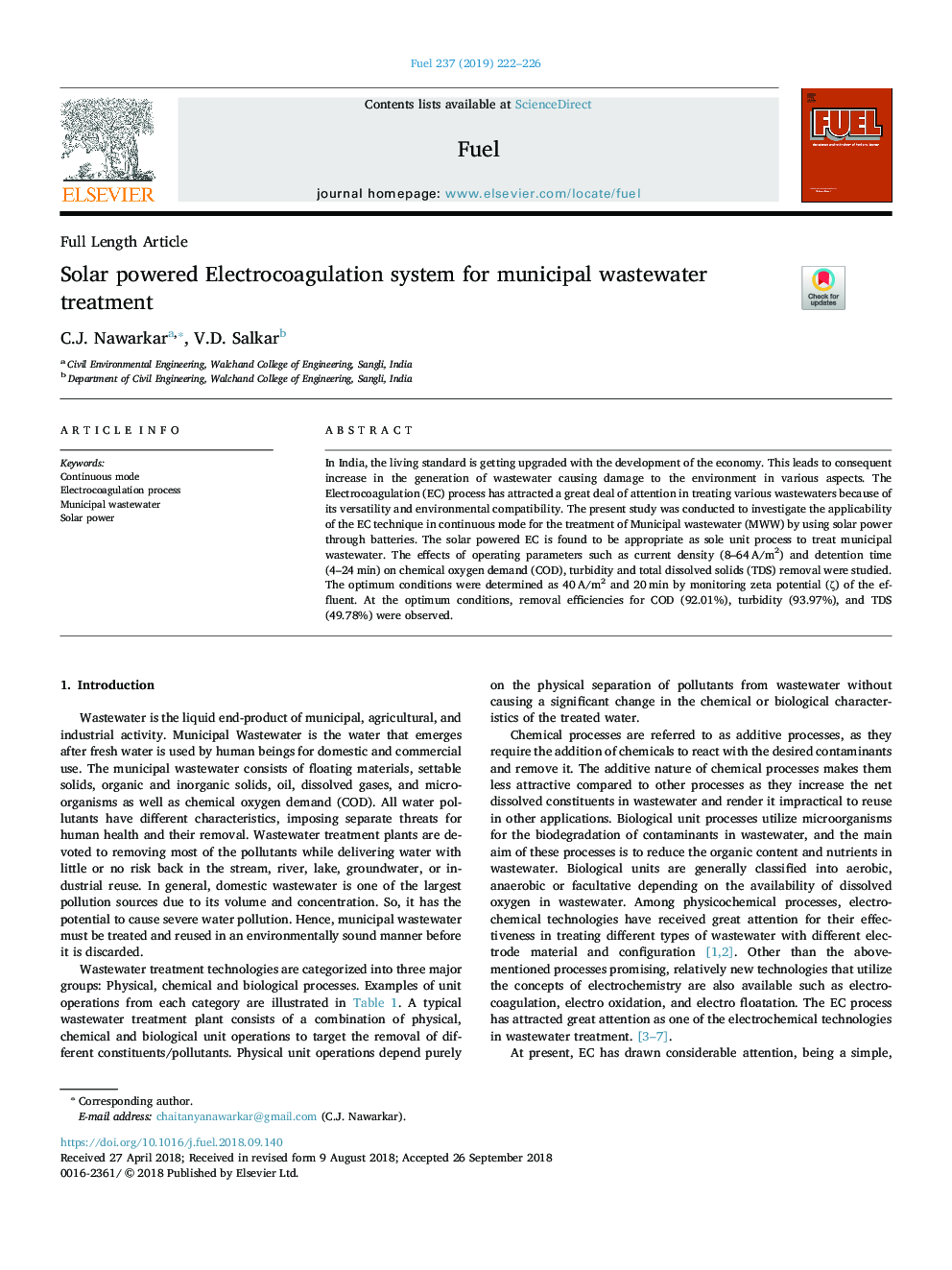| Article ID | Journal | Published Year | Pages | File Type |
|---|---|---|---|---|
| 11016636 | Fuel | 2019 | 5 Pages |
Abstract
In India, the living standard is getting upgraded with the development of the economy. This leads to consequent increase in the generation of wastewater causing damage to the environment in various aspects. The Electrocoagulation (EC) process has attracted a great deal of attention in treating various wastewaters because of its versatility and environmental compatibility. The present study was conducted to investigate the applicability of the EC technique in continuous mode for the treatment of Municipal wastewater (MWW) by using solar power through batteries. The solar powered EC is found to be appropriate as sole unit process to treat municipal wastewater. The effects of operating parameters such as current density (8-64â¯A/m2) and detention time (4-24â¯min) on chemical oxygen demand (COD), turbidity and total dissolved solids (TDS) removal were studied. The optimum conditions were determined as 40â¯A/m2 and 20â¯min by monitoring zeta potential (ζ) of the effluent. At the optimum conditions, removal efficiencies for COD (92.01%), turbidity (93.97%), and TDS (49.78%) were observed.
Related Topics
Physical Sciences and Engineering
Chemical Engineering
Chemical Engineering (General)
Authors
C.J. Nawarkar, V.D. Salkar,
